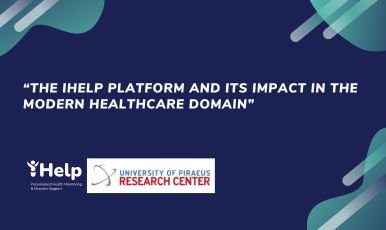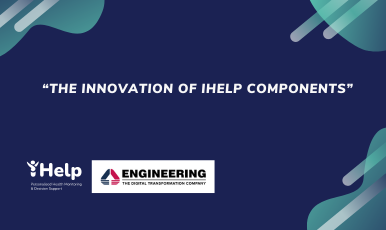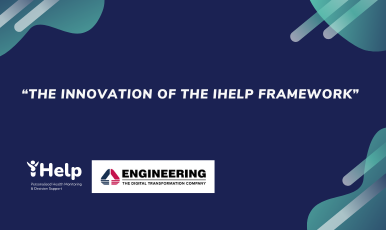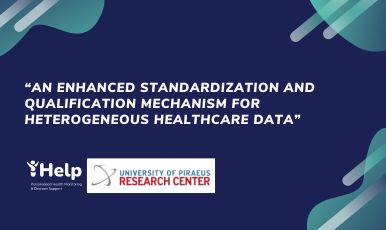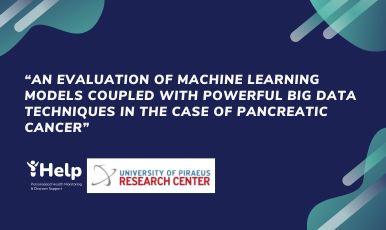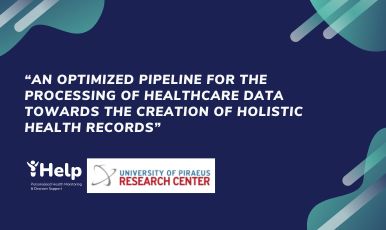Nowadays, the healthcare domain faces various challenges related to the diversity and variety of data, their huge volume, and their distribution, thus there is an ever-increasing demand from healthcare organizations to implement and utilize innovative solutions and applications to gain actionable insights from their data, [1]. Thus, data integration, effective management, and utilization of clinical data are essential parts of the overall data lifecycle in the healthcare domain. Data have long been a critical asset for medical clinics, hospitals, governments, and every stakeholder in the healthcare domain. The massive investments by the healthcare industry into new technologies and the rapid growth in the usage of cloud computing, mobile computing, medical devices, IoT, and Artificial Intelligence (AI) have been key factors for the emerging need for enhanced and state-of-the-art healthcare analytics applications and solutions, [2]. The emerging need for the production and sustainable collection of patient-gathered health data (PGHD) and their efficient integration with the patient’s primary data, such as lab results, genomics, and family history, have revealed new potentials in the modern healthcare domain, [3]. In that direction, the improved processing and analysis of patients’ integrated healthcare data is of major importance for every stakeholder. The latter could lead to enhanced diagnostics and care strategies, as well as the extraction and leveraging of actionable value and knowledge out of these data. Hence, Healthcare Professionals (HCPs) and healthcare administrators need streamlined and robust Health Information Systems (HIS) that seamlessly integrate healthcare with advanced technologies and innovative solution. iHelp aims to introduce a holistic platform, focusing on the introduction of a personalized healthcare framework in the case of Pancreatic Cancer (PC). The iHelp framework facilitates the collection, integration, and management of health-related data from diverse sources, including medical records, lifestyle, behavior data, and social media interactions.
This data is organized into the standardized Holistic Health Records (HHRs) format which is a novelty introduced by the iHelp project. Moreover, innovative, and AI-based decision support mechanisms for personalized risk detection, and prevention, as well as recommendation and intervention models, are provided. These tools are coupled with extensive research and SotA approaches from various domains such as clinical studies, Pancreatic Cancer research, Artificial Intelligence (AI), Big Data analytics, IoT, software engineering, social media analytics, and cloud technologies. In that respect, the iHelp solution provides enhanced personalized experiences and recommendations based on patient data through different devices and systems. The solution has been also validated and evaluated for its generalization and wider applicability in other types of cancer, and more specifically on the liver, anal, and prostate. The latter showcases its potential for wider adoption from healthcare stakeholders and is designed to be highly exploitable, by emphasizing its high usability and potential integration with different HIS and platforms, leading to the introduction of a European platform for enhanced personalized healthcare.
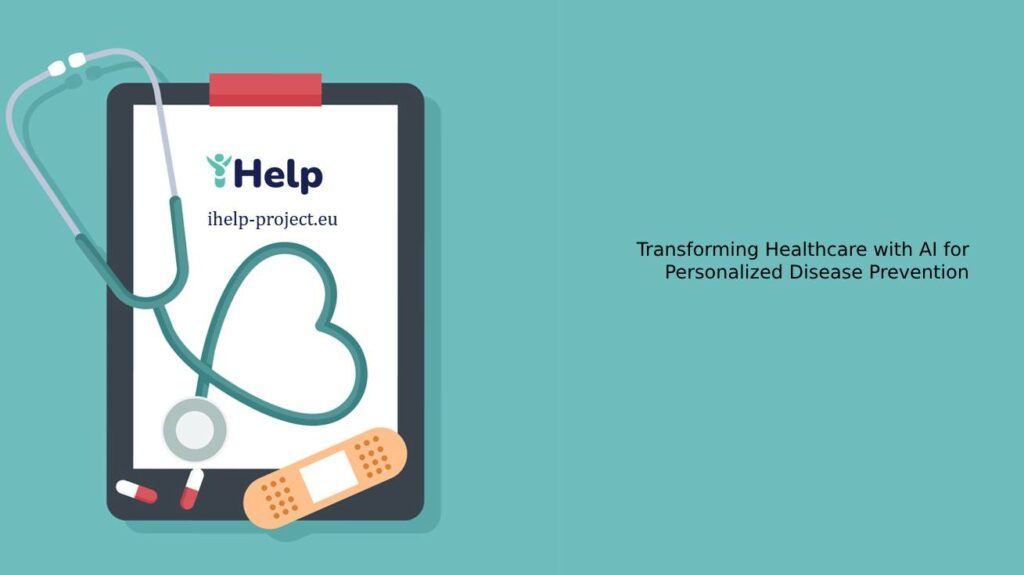
The primary exploitable result of iHelp is personalized healthcare provisioning through integrated data, user-oriented interfaces, prediction models, prevention and intervention strategies, engagement methodologies, and innovative business models. In that context, the project aims to deliver multi-level and user-centric solutions in research, healthcare, and business communities. These solutions include different AI Models for Personalized Health Prediction that are also integrated with an Analytic Workbench that serves as a repository for the deployment and execution of the implemented AI models. Moreover, a scalable Big Data Platform offers the mechanisms for the storage of integrated healthcare data into the common HHR format.
The implementation of an advanced Decision Support System (DSS) that incorporates the utilization of visual analytics and integrates with the Monitoring, Alerting, and Feedback component provides an improved solution to the HCPs for the overall monitoring and assessment of individuals’ health. Finally, the integration with the iHelp’s patient companion application and a Tailored Conversational Virtual Coaching System provides a near real-time integration between the HCP and a patient. By leveraging these mechanisms, iHelp aims to acquire and exploit domain knowledge, patient information, and insights into PC risks from diverse data sources through a holistic data management platform. This approach aims to advance scientific understanding and communicate project results to relevant stakeholders.
The target customers for the iHelp framework can be identified as HCPs, individuals, data scientists/developers, and healthcare policymakers. More specifically, HCPs benefit from personalized healthcare and risk assessment, leading to time and cost savings. The research, design, and implementation of innovative solutions for personalized healthcare make diagnostics smarter and more targeted, such as in the case of Pancreatic Cancer, where early identification and personalized treatments can help in the design of improved screening programs. The latter will lead to improvements in the monitoring, care, and QoL of the patients. The ability to identify which preventative measure and intervention is delivering the desired impact can massively help in the development of new diagnostic and treatment regimes. Individuals gain increased awareness, early risk assessment, and personalized interventions. Health is a very sensitive issue for any individual and the interrelationships between various health conditions make it paramount to raise awareness of risks and relevant interventions. Increased awareness, early risk assessment and personalized interventions and recommendations can reduce the risks of any type of cancer, improve health literacy and QoL by empowering individuals to take an active role in the management of their own life. Moreover, direct and (near) real-time communication with HCPs is facilitated through the delivery of user-centric mobile and wearable applications, as well as the DSS.
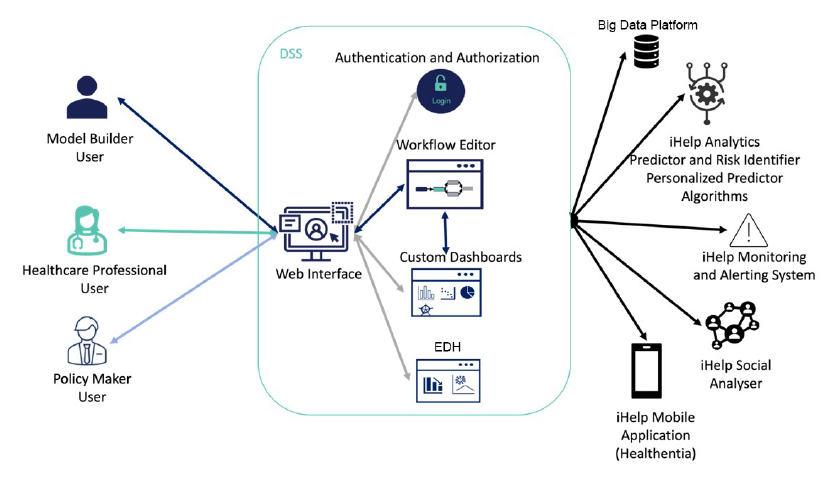
Data Scientists/developers are another group of stakeholders that can benefit from the innovative approaches and standardized data modeling introduced in the context of the project. Innovative containerized and federated learning approaches are followed and introduced as SotA approaches to also overcome the ethical and legal issues that may arise from different stakeholders. Moreover, advanced AI-based models for early risk prediction and assessment are introduced and developed, while a standardized data modeling approach through the realization of HHRs is followed and introduced. The latter leads to the provision of solutions and mechanisms for enhanced information acquisition, interoperability, and aggregation. Finally, healthcare policymakers can utilize AI-based analytics for informed policy and decision-making related to healthcare interventions. The analysis of personalized risks and interventions can also inform the policy-making related to the design of new and effective screening programs. Moreover, the evaluation and optimization of targeted policies through AI-infused analytics/simulations and visualizations can inform evidence-based policy and decision-making. iHelp seeks to enhance patient care, improve the QoL, and contribute to the advancement of personalized healthcare for PC, as well as for other types of cancer. In that point, it would be useful to also present and state the feedback from the HCPs from four of our pilots who also act as early adopters of the iHelp solution to further highlight its wider impact and added value in the healthcare domain.
“The UK-based “UniMan” iHelp study uses advanced technologies, particularly in the field of genomics and epigenomics. Employing large-scale data, AI models have been developed by analyzing 100’s of thousands of genetic and epigenetic markers that play a role in cancer and other diseases. Using such analyses, our participant’s health span and future health risks can be predicted by combining genetic predisposition, lifestyle, and social factors.
The iHelp platform integrates these assessments and allows for an effective way of communicating personalized risk assessments to change behaviors. By tailoring risk estimation and communication at the individual level the iHelp approach is thereby demonstrating a significant impact on changing health-related behaviors. In conclusion, the iHelp approach lies at the rapidly evolving intersection of AI and personalized medicine and is showing great potential for improving the future of disease prevention and health promotion.”
Kenneth Muir – Professor of Epidemiology, University of Manchester
Artitaya (Li) Lophatananon – Senior Research Fellow, University of Manchester
Te-Min Ken – UniMan iHELP Medical lead, University of Manchester
“The iHelp platform impacts hospitals by offering AI-based tools for personalized health monitoring and decision support, focusing on pancreatic cancer. It enables early risk identification and management, integrates real-time clinical data for assessment, and supports the development of predictive models for patient care. This approach can lead to improved outcomes through tailored treatment plans and early detection strategies. The early identification and detection of pancreatic cancer through the iHelp platform is seen as potentially life-saving by our hospital’s clinicians, who hold a very positive outlook on this system.”
Prof. Dr. Shabbir Syed Abdul MD, MSc, PhD. – Professor of Artificial Intelligence & Digital Health
“iHelp platform can improve the healthcare providers’ knowledge by the comprehensive medical checklist that is guiding the medic through the required activities for early disease diagnosis and provides powerful tools for fast and easy triage of the patients at risk to develop one extremely lethal malignancy.
The early and efficient triage is a prerequisite for adequate, prompt, and focused prevention.
The platform could become an irreplaceable and valuable tool for constant, daily monitoring of the patient at risk health status, behavior, and results of the preventive program implementation, saving medical specialists time and efforts for numerous medical control examinations and advice that was proved during the Medical University of Plovdiv pilot.”
Prof Rostislav Kostadinov, MD, PhD, DSc – Professor at Department for Epidemiology and Disaster Medicine – Medical University of Plovdiv, Plovdiv, Bulgaria
Prof Dilyana Vicheva, MD, PhD – Professor ENT Clinic, University Hospital for Active Treatment “Kaspela”, Plovdiv, Bulgaria
Yancho Madzharov, MD – Outpatient clinic for primary medical care – individual practice „Petia Madzharova” Ltd, Parvomai, Bulgaria
“I have a very positive view on the utilization of iHelp, as its tools enable better clinical monitoring and effective assessment of patient progression, as well as facilitating rapid and direct contact with study participants. In our pilot, we have utilized the tools developed by iHelp with the biomedical data provided by our hospital to ensure their utility for us.”
Juan Ramón Berenguer Marí, Biotechnology faculty at the Hospital Dénia-Marina Salud
“What the doctors value the most in the iHelp platform is the prompt availability of behavioral data collected via IoT’s during patients’ day-by-day activities: an information that healthcare professionals are not used to see in detail and in near real time on their screen.
The fact that such information is shown side by side with ordinary clinical data, offering a comprehensive picture of the patient’s condition in one place, is viewed by the doctors as an important added value.”
Dr. Andrea Damiani, Fondazione Policlinico Universitario Agostino Gemelli
References
[1] C. Lee, Z. Luo, K.Y. Ngiam, M. Zhang, K. Zheng, G. Chen, B.C. Ooi, and W.L.J Yip, “Big Healthcare data analytics: Challenges and applications,” Handbook of large-scale distributed computing in smart healthcare, pp. 11-41, 2017.
[2] A. Dubey, and A. S.Verma, “Effective Remote Healthcare and Telemedicine Approaches for Improving Digital Healthcare Systems,” in Digital Health Transformation with Blockchain and Artificial Intelligence. CRC Press, 2022, pp. 273-297.
[3] I. Mlakar, V. Šafran, D. Hari, M. Rojc, G. Alankuş, R. Pérez Luna, and U. Ariöz, “Multilingual conversational systems to drive the collection of patient-reported outcomes and integration into clinical workflows”, Symmetry, vol. 13, no. 7, p. 1187, 2021

